Japanese egg are renowned for their exceptional quality, freshness, and versatility in cuisine. With strict production standards and a deep-rooted cultural significance, they play a vital role in both traditional dishes and modern meals. Discover the fascinating journey of Japanese eggs, from farm to table, and why locals considered them as a symbol of quality and health.
What is Japanese egg?
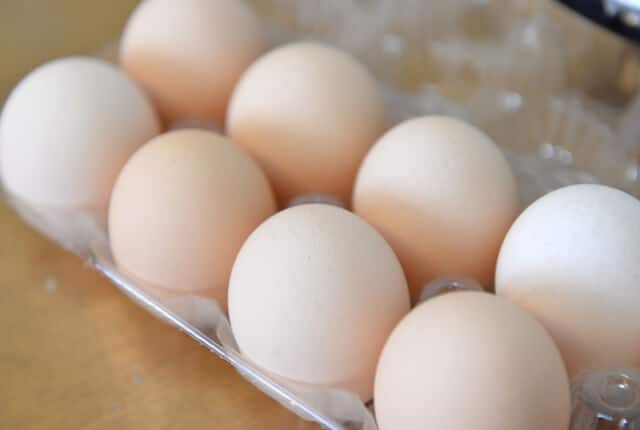
“Japanese eggs” are the only eggs in the world that everyone can eat “raw.” They are safe, reliable, and delicious eggs that Japanese egg producers recommend with confidence. Japanese egg yolks tend to be of a more vibrant orange color. When producing eggs in Japan, producers assume the eggs will be eaten raw (although many are not), and they take an approach that guarantees this is safe. Thus, in countries where people assume all their eggs cooked thoroughly before consumption, such stringent requirements are unnecessary.
Japanese ranked 2nd largest egg lovers in the world
According to Japan Poultry Association, one Japanese person consumed 339 eggs per year on average as of 2022, ranking second in the world after Mexico. Furthermore, over 85% of Japanese people like eggs and eat the second most in the world per capita.
Japanese egg History
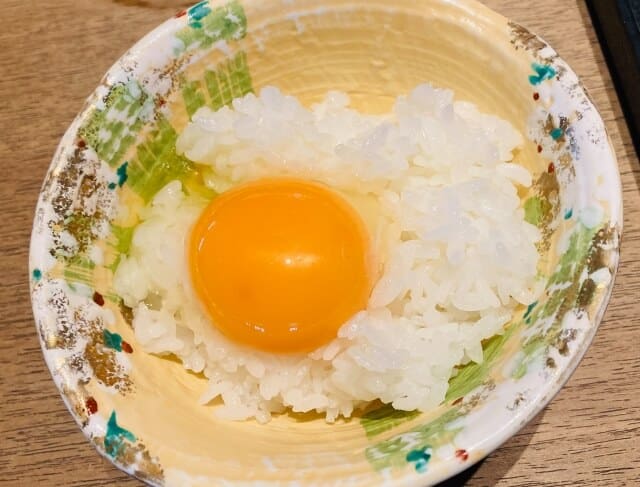
In Japan, chickens arrived from China via the Korean Peninsula around the same time, and poultry farming became an established practice. Historical records like the Kojiki describe the use of chickens for food, medicine, and rituals. However, dietary restrictions during the reigns of Emperors Tenmu and Shomu led to a decline in meat consumption, although chickens and their eggs remained in limited use. It wasn’t until the Edo period that egg consumption gained traction, though locals considered them a luxury item.
After 1955, eggs became a staple in Japanese households due to changing dietary awareness, Westernization of food habits, and nutritional campaigns emphasizing protein and calcium intake. Eggs gained cultural significance, symbolizing health and vitality with widespread popularity in various forms, from fried eggs and boiled eggs to specialty dishes like hot spring eggs. Slogans and traditions celebrated eggs as an essential part of daily life, reflecting their importance in both nutrition and cultural practices.
Quality produced Japanese eggs
Eggs undergo multiple inspections at the group’s farms and packing plants, starting from before they are laid until they shipped them. These inspections include monitoring chicken health and the quality of the eggs to ensure safety and freshness.
The packing factory certified under FSSC22000, an international food safety management standard, ensuring that they produced eggs under strict quality and hygiene controls.
For eggs certified as part of the “Safe and Secure Hiroshima Brand,” detailed product information is disclosed. This includes the farm of origin, feed, hygiene practices, and Salmonella testing, allowing customers to trace the product’s history and trust its safety.
The group promotes collaboration between crop and livestock farming. Livestock farmers supply compost to crop farmers, while crop farmers produce feed crops in rotated fields to support livestock farming, creating a sustainable and integrated agricultural system.
Types of eggs in Japan
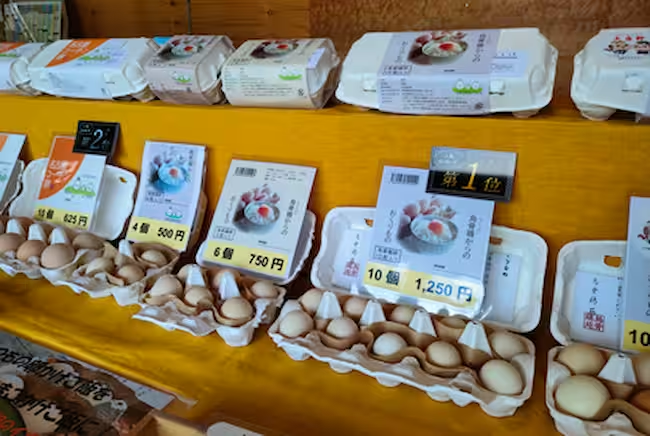
There are many different types of eggs produced in Japan. While hen eggs are the most common, there are many other types. Below are some representative types of eggs.
Regular eggs
Regular eggs are the most common type of egg and come mainly in white and brown varieties. The colour varies depending on the breed of hen. Regular eggs are usually produced by caged hens fed a standard diet.
Free range eggs
Free range eggs come from hens that enjoy the freedom to move around naturally in their environment. These eggs stand out with their distinctive brown shells and rich, full albumen (egg white). The hens’ active lifestyle directly contributes to the superior quality of their eggs.
The production process follows strict standards:
- Hens roam freely in spacious, well-maintained sheds
- Each egg carries important tracking information
- Producers print details about the farm location and production method directly on the eggs
- Every egg can be traced back to its source
This careful attention to both hen welfare and production transparency ensures consumers receive high-quality eggs while supporting more natural farming practices.
Organic eggs
Organic eggs in Japan carry the prestigious JAS (Japanese Agricultural Standard) organic certification, meeting some of the strictest standards in the world. These eggs were the first to receive organic certification in Japan, marking a milestone in sustainable farming.
What Makes These Eggs Special:
- Hens eat feed made primarily from organic corn and soybeans
- They drink pure spring water
- The chickens enjoy free-range living conditions
Quality Control Measures:
- Strict monitoring of feed quality
- Careful separation during production and distribution
- Zero contact with genetically modified crops
- Regular inspections of living conditions
This commitment to organic standards ensures not only healthier eggs but also better living conditions for the hens. Each step of the production process is carefully monitored to maintain the highest organic standards, from the quality of feed to the hens’ living environment.
Local chicken eggs
Local chicken eggs in Japan offer unique flavors and exceptional nutritional benefits thanks to regional farming methods and specialized feeds. While these premium eggs command higher prices than standard varieties, their superior taste and nutritional content make them popular choices for special occasions and gifts.
Notable Regional Varieties:
Nagoya Cochin Eggs (Aichi Prefecture)
These eggs stand out for their firm, elastic texture and complex flavor profile. They offer a perfect balance of high protein and low fat content, delivering a rich umami taste that enhances any dish.
Hinai Jidori Eggs (Akita Prefecture)
It is known for their prominent yolks and exceptional nutritional value, these eggs possess a unique flavor reminiscent of pheasant. Their complex taste profile makes them a favorite among culinary enthusiasts.
Satsuma Jidori Eggs (Kagoshima Prefecture)
Satsuma Jidori Eggs are distinguished by their deep-colored yolks, these eggs pack a powerful nutritional punch. They’re rich in protein, vitamins, and minerals while maintaining low fat content. Their robust umami flavor makes them particularly prized in Japanese cuisine.
Silkies Eggs (Kagawa & Shizuoka Prefectures)
These remarkable eggs feature large, flavorful yolks and boast impressive nutritional content. They contain ten times more vitamin A than regular eggs and are rich in beneficial DHA and EPA. Their distinctively sweet, rich taste sets them apart from other varieties.
Japanese egg Restaurants
Kisaburo Farm (定食 喜三郎農場)
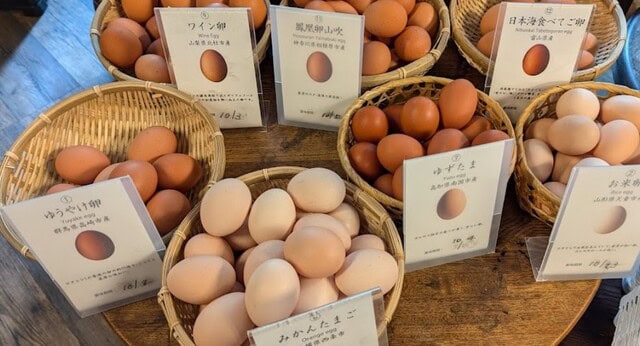
You can enjoy the charm of their restaurant to the fullest by topping your egg rice with your favorite dishes. All of their abundant side dishes go perfectly with egg rice. So, one of their selling points is their wide variety of menu items, mainly dishes using eggs and chicken.
Ukokkeien (烏骨鶏苑)

Located in Mori Town, Shizuoka Prefecture, Ukokkeien is a specialty store for silky eggs and also offers snacks made from silky eggs. They also offer online shopping, allowing customers to enjoy fresh eggs anywhere in the country. The free-range silky eggs are particularly sweet.
Wakamiya Jiouran (若宮地黄卵)
Another place to enjoy delicious eggs in Japan is “Wakamiya Jidori” in Fukuoka. Here you can enjoy dishes made with ITQI two-star awarded eggs. Known for their fresh and rich flavour, raw egg rice and omelettes are popular. The interior has a cosy atmosphere and is popular with the locals.
Summary
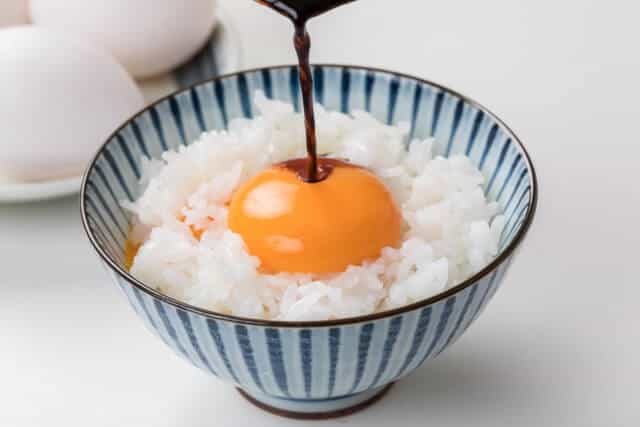
Japanese eggs offer a unique combination of quality, freshness, and taste that reflects the country’s dedication to food safety and excellence. Whether you’re enjoying them in a comforting bowl of tamagoyaki or as a topping for sushi, these eggs are a true staple of Japanese cuisine. If you ever find yourself in Japan, don’t miss the opportunity to try them for yourself—whether you’re at a local market or in a traditional restaurant.
If you’re interested in exploring more delicious Japanese flavors, be sure to try other iconic dishes like tamago yaki, nishiki tamago, and more, which showcase the unique versatility of Japanese eggs in cuisine.
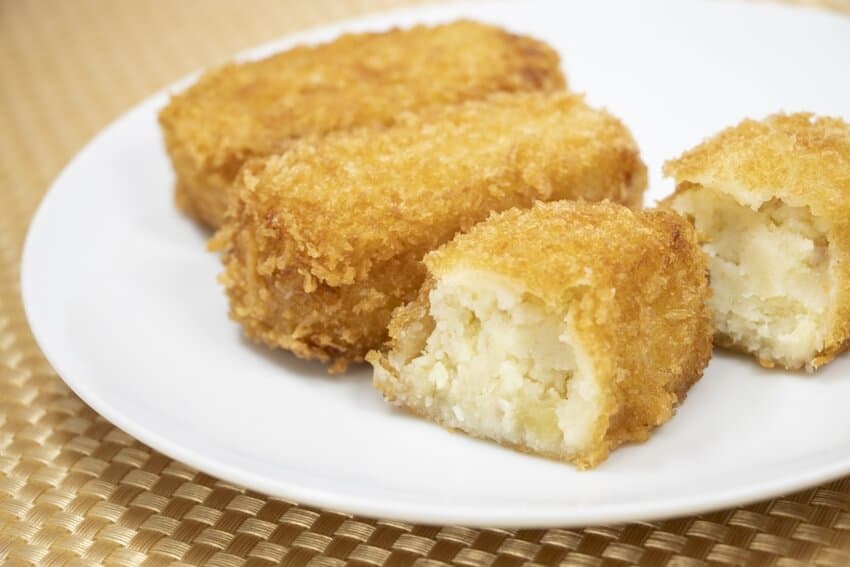
 牧野悦子-1-1256x832-1.jpg)
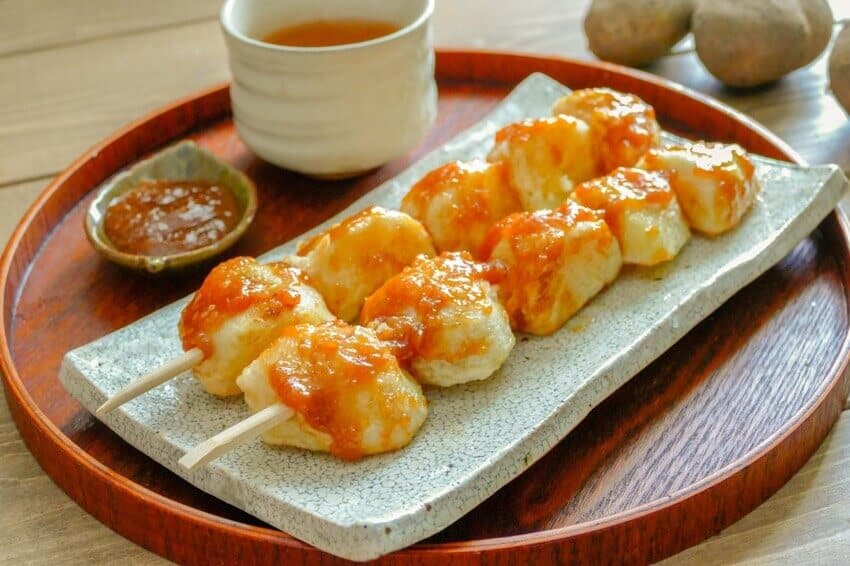
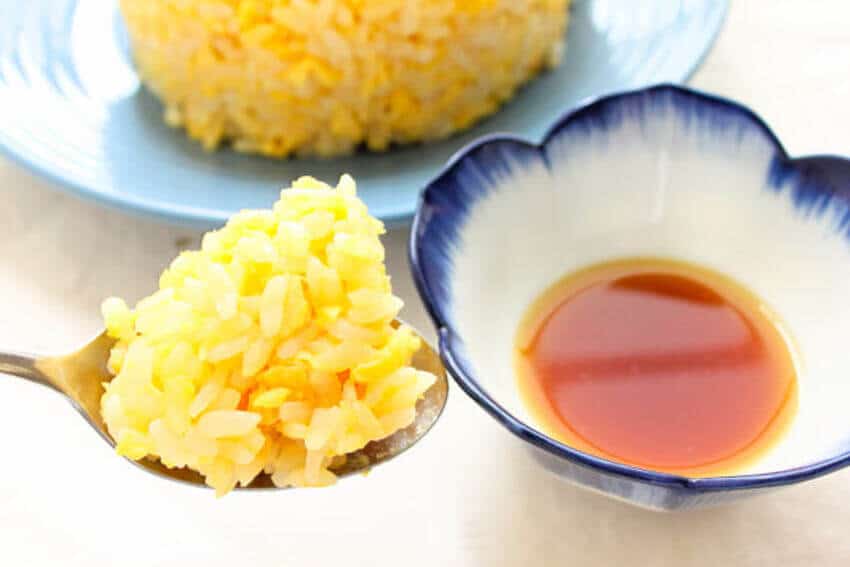
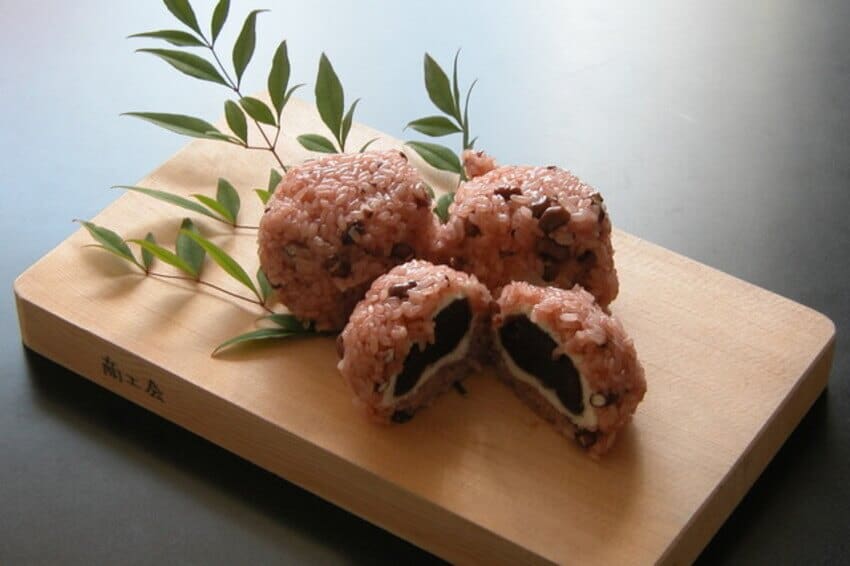

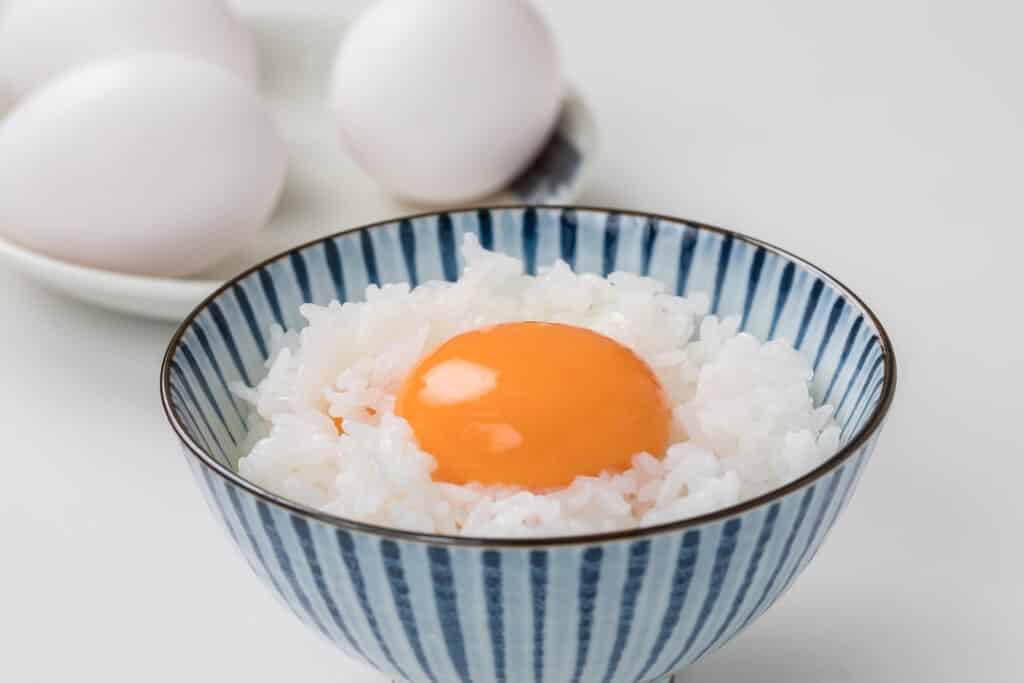
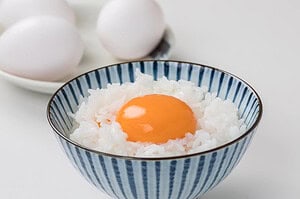
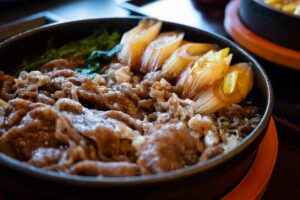
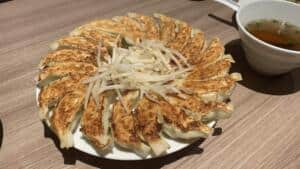

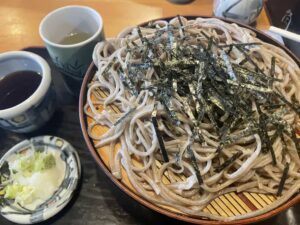

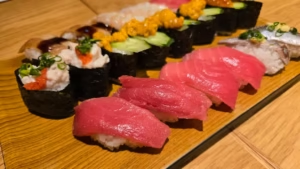
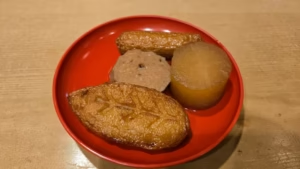

Comments